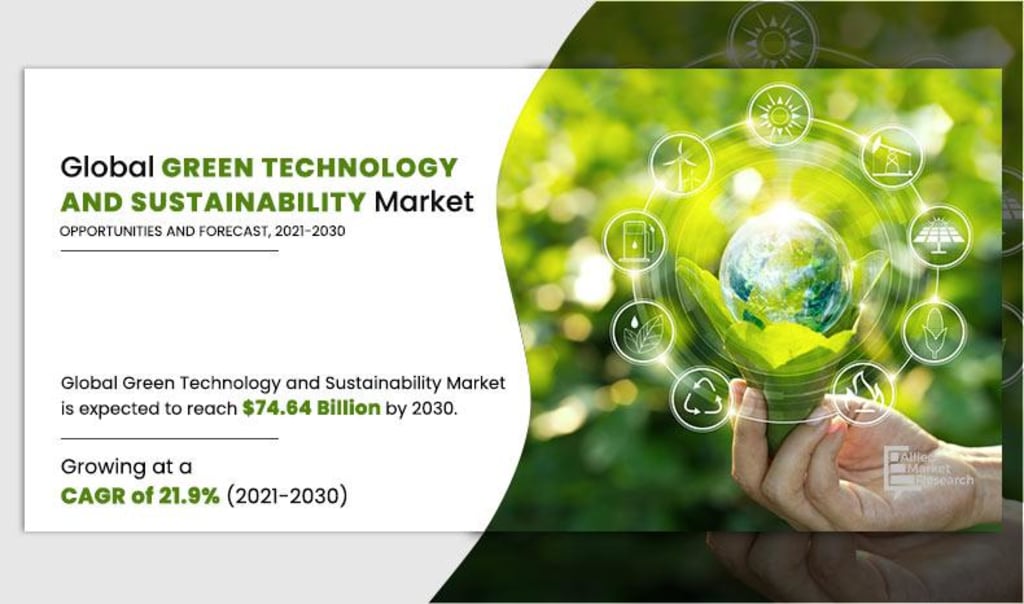How to Use Sustainable Blockchain Technology for a Greener Future
Exploring the Potential of Blockchain to Combat Climate Change and Foster Sustainability

How to Use Sustainable Blockchain Technology for a Greener Future
Sustainable blockchain solutions can empower communities to take control of their own resources and ensure that they are used in responsibly and equitably way."
- Silvana Carpineanu, Founder of EthicalChain
Climate change is one of the most pressing issues of our time, and there is a growing awareness that we all need to take action if we want to create a sustainable future. One technology that is often cited as a potential contributor to this effort is blockchain. In this blog post, we will explore how blockchain technology can be used to create a greener future.

1. What is Blockchain Technology and How Can it Help Create a Sustainable Future?
Blockchain technology is a distributed ledger system that is used to secure and verify transactions. It is decentralized, meaning that there is no central authority controlling the network. Instead, it is maintained by a network of nodes that all participate in the verification and recording of transactions.
One of the main benefits of blockchain technology is that it enables trust between parties without the need for a middleman. This could have significant implications for sustainability efforts.
By using blockchain technology, we can create a more secure and transparent system for tracking and verifying sustainability-related transactions. This could include everything from carbon credits and offsets to renewable energy certificates and sustainable supply chain management.
How Blockchain Technology Can Help Combat Climate Change
One way that blockchain can help combat climate change is by enabling the creation and monitoring of carbon credits and offsets. This can be done by creating a blockchain-based registry that tracks the creation and transfer of carbon credits. The registry would be transparent and secure, giving buyers and sellers the reassurance that they are dealing with legitimate credits.
Carbon credits and offsets can incentivize companies to reduce their carbon emissions, by allowing them to offset their emissions by supporting renewable energy projects or investing in carbon capture and storage. By using blockchain technology to manage these credits and offsets, we can create a more secure and transparent system that encourages more companies to participate.
How blockchain technology can help track and reduce waste and pollution.
Another way that blockchain technology can help combat climate change is by enabling the creation of a more transparent and efficient system for tracking and reducing waste and pollution. By using blockchain technology to track supply chains, we can gain more visibility into the sources of waste and pollution.
For example, companies could use blockchain technology to track the source of their raw materials and ensure that they come from sustainable sources. They could also use blockchain technology to track their waste streams, and identify areas where they could reduce their waste output.
The Role of Blockchain in Promoting Sustainable Development
One of the key issues with sustainable development projects is that they are often plagued by a lack of transparency and accountability. This can make it difficult to track progress and ensure that funds are being used effectively.
Blockchain technology can help address this issue by creating a more transparent and accountable system for managing sustainable development projects. By using a blockchain-based system to manage funds and track progress, we can create greater visibility into how resources are being used, and ensure that funds are being used effectively.
Examples of successful blockchain projects promoting sustainable development.
There are already some successful examples of blockchain projects promoting sustainable development. For example, the UN has launched a blockchain-based initiative called Climate Chain, which aims to help combat climate change by tracking carbon emissions.
Another example is the Blockchain for Social Impact Coalition (BSIC), which is a group of blockchain startups that are dedicated to promoting social and environmental sustainability. The group is working on a number of projects, such as using blockchain technology to track land ownership rights and create a more transparent and secure system for managing aid funds.
The Future of Sustainable Blockchain Technology
There is no doubt that blockchain technology has enormous potential to contribute to sustainability efforts. As the technology continues to evolve, we can expect to see more use cases emerge, and more companies and organizations begin to adopt blockchain-based solutions.
One of the key benefits of blockchain technology is that it enables greater transparency and accountability. By using blockchain to manage sustainability-related transactions and projects, we can create a more trustworthy system that encourages participation and investment.
Call to action for businesses and governments to invest in sustainable blockchain technology
As we move towards a more sustainable future, it is essential that we invest in the technologies that will help us get there. Blockchain technology is one of the most promising technologies in this regard, and it is up to businesses and governments to invest in its development.
By investing in blockchain technology, businesses and governments can help create a more sustainable and equitable world. They can help promote transparency and accountability, reduce waste and pollution, and support sustainable development.
References
[1] "Blockchain and Sustainable Development." World Economic Forum, 2018.
[2] "Unlocking Blockchain for Sustainability." UN Environment, 2018.
[3] "Climate Chain: Fighting Climate Change with Blockchain." United Nations, 2019.
[4] "Blockchain for Social Impact Coalition." BSIC.
Some Facts:
- The energy consumption of Bitcoin mining alone is estimated to be equivalent to that of entire countries such as Argentina or Norway, making it a significant contributor to carbon emissions. (Source: Cambridge Bitcoin Electricity Consumption Index)
- However, there are sustainable blockchain solutions such as proof-of-stake (PoS) that require significantly less energy than the traditional proof-of-work (PoW) consensus algorithm used by Bitcoin. (Source: CoinDesk)
- Blockchain technology can be used to create decentralized systems for tracking and verifying the sustainability of products and supply chains, enabling consumers to make more informed choices about the products they buy. (Source: World Economic Forum)
- By using blockchain to create more efficient and transparent systems for renewable energy generation and distribution, we can accelerate the transition to a low-carbon economy. (Source: Rocky Mountain Institute)
Conclusion
In conclusion, blockchain technology has enormous potential to contribute to a greener future. By using blockchain to promote transparency and accountability, reduce waste and pollution, and support sustainable development, we can create a more sustainable and equitable world. It is up to businesses and governments to invest in the development of sustainable blockchain technology and help create the future we want.
About the Creator
RAJA LAKSHMI R
Experienced blockchain developer with a track record of creating decentralized applications and smart contracts on various platforms, including Ethereum. Skilled in Solidity ,such as DeFi, NFTs, and layer 2 scaling solutions.
Enjoyed the story? Support the Creator.
Subscribe for free to receive all their stories in your feed. You could also pledge your support or give them a one-off tip, letting them know you appreciate their work.





Comments
There are no comments for this story
Be the first to respond and start the conversation.